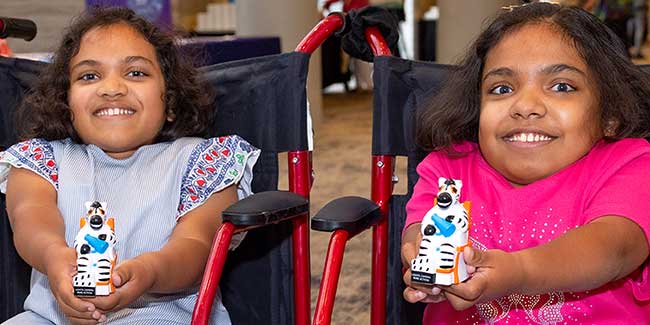The information provided on this page is for informational purposes only. The National Organization for Rare Disorders (NORD) does not endorse the information presented. The content has been gathered in partnership with the MONDO Disease Ontology. Please consult with a healthcare professional for medical advice and treatment.
PrintYunis-Varon syndrome is a rare condition that affects many different parts of the body. Signs and symptoms are generally present from birth and may include underdeveloped or absent collarbones (clavicles); large fontanelles; characteristic facial features; hypotonia (reduced muscle tone) and/or abnormalities of the fingers and toes. Affected people may also experience feeding difficulties, breathing problems, brain malformations, heart defects, skeletal abnormalities, developmental delay, and/or intellectual disability. Yunis-Varon syndrome is caused by changes (mutations) in the FIG4 gene and isinherited in an autosomal recessive manner. Treatment is based on the signs and symptoms present in each person.
The Genetic and Rare Diseases Information Center (GARD) has information and resources for patients, caregivers, and families that may be helpful before and after diagnosis of this condition. GARD is a program of the National Center for Advancing Translational Sciences (NCATS), part of the National Institutes of Health (NIH).
View reportOrphanet has a summary about this condition that may include information on the diagnosis, care, and treatment as well as other resources. Some of the information and resources are available in languages other than English. The summary may include medical terms, so we encourage you to share and discuss this information with your doctor. Orphanet is the French National Institute for Health and Medical Research and the Health Programme of the European Union.
View reportOnline Mendelian Inheritance In Man (OMIM) has a summary of published research about this condition and includes references from the medical literature. The summary contains medical and scientific terms, so we encourage you to share and discuss this information with your doctor. OMIM is authored and edited at the McKusick-Nathans Institute of Genetic Medicine, Johns Hopkins University School of Medicine.
View report
One in 10 Americans lives with rare disease, many of whom fight a daily battle to access the care and support they need. Your gift to the National Organization for Rare Disorders (NORD®) funds life-changing programs and helps us advance policies and research to ensure that everyone gets the care they need AND deserve.
